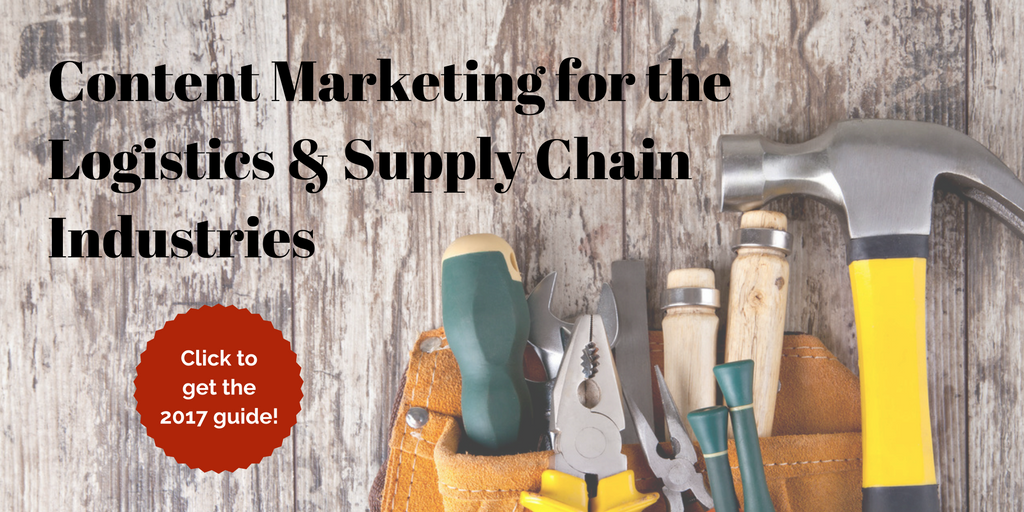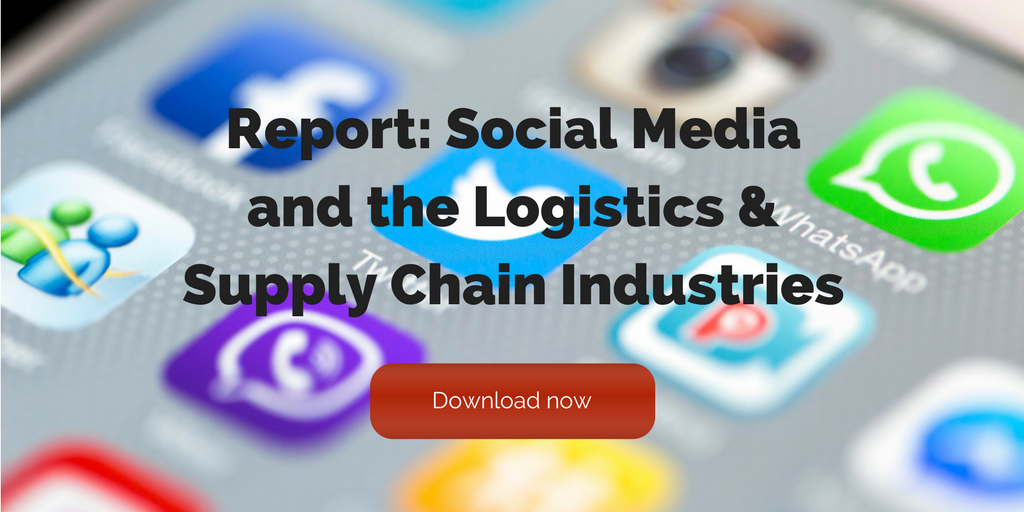
by Jennifer Hart Yim | Jun 26, 2019 | Blog, Content Marketing, Manufacturing & Distribution, Marketing, Supply Chain, Talent
The global Supply chain provides goods faster and more efficiently than ever before. Here are the top supply chain skills for one of the most important industries: manufacturing.
Highlights:
- Sitting at the intersection of raw materials acquisition and distribution of finished goods, manufacturing is one of the most crucial functions within the global Supply Chain.
- If you’re in Manufacturing purchasing, think closely about what sort of buying you’re doing, how to diversify that experience, and deepen your understanding of the market you’re buying in – there are big dividends for those who do.
- Boosting your skills with continuous improvement, just-in-time manufacturing, and Six Sigma are some of the best ways to distinguish yourself in the field.
This guest post comes to us from Argentus Supply Chain Recruiting, a boutique recruitment firm specializing in Supply Chain Management and Procurement.
The global Supply Chain provides goods to consumers faster and more efficiently than ever before, and there’s a staggering diversity of Supply Chain professionals making that happen. Today, we want to take a moment to highlight the skills profile for one of Supply Chain’s most important industries – which also happens to contain one of its hottest job markets: Manufacturing.
Sitting at the intersection of raw materials acquisition and distribution of finished goods, manufacturing is one of the most crucial functions within the global Supply Chain. Despite perennial political statements around the “demise of manufacturing,” the sector is quite strong in Canada, especially in the Supply Chain, Purchasing and Logistics functions.
At Argentus, we’ve always worked in manufacturing recruitment, but we’ve been making a big push into this area recently, including in the areas of Aerospace, Consumer Electronics, Automotive, Electrical Manufacturing, Manufacturing Automation, and Food Production. We’ve seen what’s happening in the industry firsthand: dynamic companies are redefining the space, using a strong Supply Chain to scale up quickly while controlling costs.
In the past few months, we’ve helped a Food Production company with an innovative approach to product development scale up their Procurement and Plant bench strength. We’ve bolstered a fast-growing Aerospace company looking for highly-technical technical buyers to boost their new product introductions. We’ve helped a startup manufacturer seeking their first Supply Chain Manager to implement a sourcing, distribution and logistics strategy for the first time.
And these are just a few. These experiences, combined with our intelligence in the marketplace, have given us a good understanding of the hottest skills in Manufacturing Supply Chain jobs in the market as of right now.
A couple caveats: this reflects manufacturing positions at the corporate Supply Chain Management level and not the shop floor / distribution centre level. It also isn’t exhaustive of all required skills, just those that we’ve noticed being in high demand recently.
So without further ado, here are some of the hottest skills:
“Direct” Purchasing: Raw Materials, Packaging, Food
Buying raw materials has always been a vital part of manufacturing – after all, what can you produce without raw materials? – but clients’ demand for specific raw materials purchasing experience is rising. Whether it’s food ingredients or building materials, companies are looking for individuals who can think strategically about raw materials to find better suppliers and processes. For certain raw materials, they want individuals who have a deep understanding of particular commodities markets. If you’re in Manufacturing purchasing, think closely about what sort of buying you’re doing, how to diversify that experience, and deepen your understanding of the market you’re buying in – there are big dividends for those who do.
ERP Skills:
It probably goes without saying at this point, but a high degree of competency with ERP systems is a must-have in today’s manufacturing Supply Chain. Many of the vital Supply Chain planning functions for most manufacturing processes (production planning, supply network planning, etc.) run through ERP systems like SAP, Oracle or Microsoft NAV, so it’s no wonder that most front line workers distinguish themselves with excellent command of these systems.
Buying “build to spec” for highly engineered components:
If you’re working in a highly technical subsection of manufacturing (electrical, aerospace, etc.), more companies are seeking Procurement people with the technical background to source components at a very early stage of new product development. We’ve worked on a number of searches recently where our client is looking for new product buyers who can source based on technical specs, as opposed to drawings. People with mechanical engineering backgrounds are excellent for these roles. But even if you don’t have that background, an understanding of detailed technical specifications can give your career a boost over more transactional buyers.
Continuous improvement:
Lean manufacturing, Kaizen and continuous improvement are decades old at this point, but manufacturers who fail to implement these models are still falling behind in the marketplace. The ability to constantly improve manufacturing processes is still one of the chief differentiators for Supply Chains, and companies are constantly on the lookout for people who can help transform and improve their operations. Boosting your skills with continuous improvement, just-in-time manufacturing, and Six Sigma are some of the best ways to distinguish yourself in the field.
So that’s some perspective from the front lines of Supply Chain recruitment in manufacturing. But what are you seeing in the marketplace, either as a Supply Chain professional or hiring manager?
Related posts:


by Jennifer Hart Yim | May 28, 2019 | Blog, Talent
Soft skills are more important than ever, and emotional intelligence is arguably more important than all the rest.
Highlights:
- Because Supply Chain now touches on every aspect of a business, soft skills have become more important than ever.
- Emotional intelligence is the ability to understand one’s own emotions as well as the emotions of others.
- Emotionally intelligent people are more thoughtful about decisions within an organization. They’re able to see others’ points of view, and better judge how their decisions will impact others.
This guest post comes to us from Argentus Supply Chain Recruiting, a boutique recruitment firm specializing in Supply Chain Management and Procurement.
The rise of emerging technologies like big data and AI has changed the skills profile for a number of white collar careers – not the least of which is Supply Chain Management, which is our specialty at Argentus. Tools like SAP, other ERP systems and Supply Chain visibility software have opened up massive opportunities for people who can analyze data and draw intelligence. They’ve raised Supply Chain’s profile in companies. The function now drives and transforms big picture strategy instead of just fighting daily fires.
Supply Chain is a STEM field. People with engineering, data analysis, systems development, and other hard skills will always be important. But there’s something interesting happening in the skills profile for top Supply Chain people: because Supply Chain now touches on every aspect of a business, soft skills have become more important than ever. It’s a bit of a paradox, but it’s borne out in our conversations with clients, as well as executives across the field.
And in 2019, there’s one soft skill that reigns supreme: emotional intelligence.
According to the World Economic Forum’s Future of Jobs report, emotional intelligence is the most important emerging soft skill heading into 2020. This great article in Fast Company digs into the research. It examines the importance of emotional intelligence (EQ), and explains why hiring managers often prize EQ over IQ when identifying talent today.
What is emotional intelligence?
In short, it’s the ability to understand one’s own emotions as well as the emotions of others. It’s closely related with empathy, and leads to an increased ability to understand your team’s needs in the workplace. In general, research has found a correlation between high emotional intelligence and job performance, mental health, and leadership skills.
In a recent interview, Supply Chain VP Taras Korec identified emotional intelligence as one of the most crucial soft skills for everyone in the field, from the analyst level up to the VP level. He also said he hires based on attitude and emotional intelligence rather than hard skills.
But organizations don’t always see the value in developing their employees’ emotional intelligence, and this has big ramifications. As Taras put it, “if you’re an analyst and you go to your boss and say, ‘I want some training on the hard skills,’ that’s a pretty obvious sell. But how many people have the courage at the analyst level to say, ‘I want to take training on emotional intelligence’? A lot of leaders may not have invested in those skills themselves. They may not see the value in them, which reinforces that deficit throughout the organization.”
According to the research, these are some of the biggest career advantages enjoyed by people with high emotional intelligence (EQ):
- The ability to deal with pressure. Emotional intelligence helps you understand and regulate your own emotional state, which leads to better stress management and healthy coping mechanisms. Supply Chain is often a high-stress profession, with critical business outcomes riding on SCM planning and performance – so emotional intelligence is particularly helpful.
- Increased co-operation. The Fast Company analysis points out how workplaces are becoming more collaborative, as well as inclusive to people from different backgrounds. Emotional intelligent people are better relationship-builders, and that’s valuable in a field like Supply Chain where you’re often working with people from all over the world.
- The superpower of using feedback as fuel. In general, intelligent people tend to recognize the importance of self-improvement and skills development. But people with good emotional intelligence are also more open to others’ feedback – which is necessary to see what they need to improve. They don’t take criticism personally, so they’re better poised to turn feedback and areas of improvement in performance reviews into fuel for personal growth.
- Improved leadership skills. People with high emotional intelligence have better empathy, resilience, and ability to build influence – key traits for business leaders. Success in Supply Chain Management – especially in disciplines like Procurement – relies on an ability to build relationships and influence stakeholders from across the business. People with high emotional intelligence are great at rising above daily firefighting. They’re more likely to be seen as leaders within a business. They’re respected. People listen when they speak, even if they don’t have a “leadership” title. As Supply Chain VP Taras Korec said in our recent interview, “there’s no reason you can’t lead, regardless of your title.”
- Better decision making and ability to adapt to change. The business world is changing rapidly in the age of digital technology, and this is especially true within Supply Chain and Procurement, which are undergoing major transformations at top organizations. Emotionally intelligent people are more thoughtful about decisions within an organization. They’re able to see others’ points of view, and better judge how their decisions will impact others.
Like any soft skill, emotional intelligence can be intangible. It’s way harder for a Supply Chain professional to put emotional intelligence on a resume than their skills with a particular SAP module. Conversely, it’s also harder for a hiring manager to systematically screen for emotional intelligence than other “hard” skills. It’s harder to design a university course around. But the fact is, you know it when you see it, and truly great hiring managers know how to assess emotional intelligence in a job interview.
You might not find emotional intelligence in a list of SCM core competencies – but like any other soft skill, it’s crucial. And it’s only becoming more important.
Related posts:


by Jennifer Hart Yim | Aug 30, 2018 | Blog, Leadership, Logistics, Supply Chain, Talent
Bad leadership in procurement has the potential to sink a company’s reputation, making it difficult to hire at all levels below it.
This guest post comes to us from Argentus Supply Chain Recruiting, a boutique recruitment firm specializing in Supply Chain Management and Procurement.
Everyone knows that a bad hire can be really costly to a business. When you account for hiring, training, and onboarding costs, plus the opportunity cost of not hiring a successful employee – not to mention the impact on workplace culture – hiring the wrong person can set a company back tens of thousands of dollars. This is something that people have written about widely across the vast array of blogs about talent.
But what are the costs of hiring the wrong employee (or employees) at the leadership level of a business?
It’s something we’ve been thinking about recently at Argentus. As a firm that helps companies hire at all levels, we have our ears to the ground about the costs that companies bear when leadership issues have hurt their reputations in the marketplace. So particularly in Procurement – one of our core areas of recruitment expertise – what’s the cost of hiring the wrong leadership?
In short, it’s this: a bad hire at the junior level costs lots of money, but a bad hire at the leadership level has the potential to upset the apple cart and sink a company’s reputation, making it difficult to hire at all levels below it. Having the wrong leader in place can create a noxious effect that filters down into senior managers, managers, sole contributors, and junior employees. Procurement sometimes struggles to get buy-in from executives and stakeholders, and having mishandled leadership can make this task even more difficult for everyone in the organization.
Even if it’s a company with a storied history and a powerhouse brand as an employer, word always gets out if the wrong leadership is in place within any specific function. It means that individuals won’t apply for jobs. They won’t respond when recruiters contact them about certain opportunities. At a certain point, it becomes hard to find recruiters who are even willing to help hire for open roles at the company. Given that recruiters, especially those who work on a contingent basis, are usually all over clients trying to send them candidates, if a recruiter won’t work with a company, you know something must be wrong.
As we’ve written about a lot, the marketplace for talent in Procurement and Supply Chain is particularly tight in this strong economy. Companies are battling to bring in star performers who can enact business transformations, implement total cost of ownership models, boost their vendor and risk management, and modernize their Procurement as the function evolves for the future. And if your Procurement leadership develops a negative reputation in the marketplace, attracting those individuals becomes simply impossible.
We should clarify what we mean by bad leadership in Procurement.
We all know it when we’ve seen it, but there are a few traits that ineffective leaders have in common: quite often, they’re individuals tasked with leadership of a Strategic Sourcing organization who don’t have boots on the ground experience in Procurement. They often don’t have the war wounds to understand the function from bottom to top. Strategy and vision are important, but subject matter expertise helps leaders gain credibility with the managers and analysts who are expected to execute that vision.
[bctt tweet=”We all know it when we’ve seen it, but there are a few traits that ineffective leaders have in common: quite often, they’re individuals tasked with leadership of a Strategic Sourcing organization who don’t have boots on the ground experience in Procurement. They often don’t have the war wounds to understand the function from bottom to top. ” username=”Fronetics”]
It’s not absolutely necessary for a CPO or VP of Procurement to have done every job in the function. But if they haven’t, it’s important for them to be able to be humble enough to recognize the subject matter expertise of the people they’re working with – especially if they’re expected to bring changes to the organization. A great leader will admit the gaps in their own knowledge, and work to figure out how they can combine their strengths with those of their team. A bad leader will act like they understand every detail of every Procurement process and category – even if they don’t.
Beyond that, in our experience, the biggest issue with troubled Procurement leadership often comes down to soft skills. For a function that often comes down to negotiation, relationship-building, and getting buy-in, people skills are everything. Ineffective leaders will micromanage, yell, and show a lack of respect for junior employees. How can a leader expect to get buy-in from executives if they can’t build relationships with their own team members? The best leaders in Procurement will empower their teams to pursue cost savings, minimize risk, and increase value without watching them like a hawk.
Leadership is a topic so complex it’s inspired a cottage industry of books and academic research – so we can’t hope to address everything about how to hire effective leaders. But what can companies do to make sure they don’t risk the almost-priceless commodity of their employer brand by installing bad leadership? Be very careful about the leaders that you hire. These individuals should either be subject matter experts, or be very willing to learn from their team-members. When interviewing prospective hires, try to assess their ability to be empathetic and build consensus, and be wary about boasts that they can enact sweeping changes through their force of will alone.
If you can’t, you might be risking more than just the time it took to hire.
Related posts:


by Fronetics | Feb 14, 2018 | Blog, Logistics, Supply Chain, Talent
Google’s management study shows that supply chain students who learn soft skills will be more innovative and successful.
A recent Google study of its top employees is shaking up the way we think about how we should be educating students. We’ve all heard about the importance of focusing on a STEM (science, technology, engineering, and math) curriculum to give students the skills they need to compete in the workforce. But Google’s study, dubbed Project Oxygen, suggests that the conventional wisdom about “hard skills” might be counterproductive.
Google’s findings have broad implications for the way supply chain companies think about training and recruitment. While an understanding of the industry and relevant technologies is, of course, important, it turns out that “soft skills” are often a more accurate predictor of innovation and success.
STEM expertise is not a priority
Project Oxygen ranked the seven most important qualities of Google’s top employees. STEM expertise ranked seventh. The shock waves of this finding are still resounding through the tech sector, as Google and other companies are rethinking the way they recruit talent.
Rather than searching only for top STEM students, Google has changed its hiring practices to include humanities majors, artists, and MBAs.
For Google’s top employees, these six “soft skills” all ranked higher than STEM expertise:
- Being a good coach;
- Communicating and listening well;
- Possessing insights into others (including differing values and points of view);
- Having empathy toward and being supportive of colleagues;
- Being an effective critical thinker and problem solver; and
- Being able to make connections across complex ideas.
What to look for when recruiting supply chain students
For training and recruitment of supply chain students, what’s emerging is a picture of a team player who is creative, empathetic, communicative, and caring. As a recent guest post on Fronetics’ blog points out, “soft skills are taking on more relevance as automation begins to handle the nuts and bolts of how products come to market, and how companies work with suppliers.”
This means that the function of the human component is to do what only humans can: be flexible, strategic, creative, understanding, and empathetic.
According to Cathy Davidson, founding director of the Futures Initiative and a professor in the doctoral program in English at the Graduate Center, CUNY, “We desperately need the expertise of those who are educated to the human, cultural, and social as well as the computational.”
Davidson goes on to point out that “what helps you thrive in a changing world isn’t rocket science. Broad learning skills are the key to long-term, satisfying, productive careers.”
What do you look for when interviewing supply chain students?
Related posts:


by Fronetics | Dec 20, 2017 | Blog, Talent
Here are our most-viewed blog posts from 2017 about talent, including tips on retaining your top talent and helping turn your employees into brand ambassadors.
The start of the new year brings along a host of resolutions. Finding a new job or advancing in a current position are common new year’s resolutions for individuals. For companies, identifying new strengths and interests within your employees and hiring and retaining great talent are common goals.
We’ve assembled our top 10 talent posts of 2017. We hope these posts help you and/or your company overcome challenges, and achieve your goals for next year.
Top 10 most popular talent posts of 2017
1. Gender Diversity is Not a Women’s Issue: It’s an Economic Issue
Gender diversity is generally viewed as a women’s issue. It is not. Research conducted by McKinsey & Company and LeanIn.org finds that despite corporate America’s stated commitment to gender diversity, outcomes are not changing. Moreover, the research finds that employees do not believe companies are taking the necessary steps to enact change. Read more.
2. Top Supply Chain Management MBA Programs 2018
Looking for talent? Try recruiting from these top-rated supply chain management MBA programs and schools. We have written before about the importance of recruiting and strengthening the relationship between academia and the supply chain industry as means to solve the growing supply chain talent gap. If your company is looking to hire, consider strengthening your rapport with schools that offer supply chain programs or specialties. Read more.
3. Are We Thinking About “Soft Skills” All Wrong?
By calling them “soft skills,” are we shortchanging competencies that are critical for supply chain and procurement professionals to succeed? One of the biggest stories in the world of Supply Chain and Procurement talent over the past few years has been the emerging importance of Soft Skills. As the field has become more strategic — with a greater impact on wider areas of business — professionals in the field have had to become stronger at advocating for it. Read more.
4. Great Supply Chain People Are Getting Harder to Find, But Do Companies Have a Talent Management Issue?
Is the Supply Chain talent gap problem really a talent management problem? This guest post from Argentus explores the so-called “talent deficit” in the field from all angles and perspectives. The fact is, it’s becoming harder for companies for find the talent that they need for these positions as baby boomers retire and the function evolves. Read more.
5. Employee Brand Ambassadors Can Influence B2B Buying Decisions
As peer influence becomes increasingly important in B2B buying decisions, empowering employee brand ambassadors will benefit your bottom line. I’ve written lately about the rise of influencer marketing. It’s a strategy B2B businesses are starting to understand and use to their advantage. But you don’t need a Kardashian or even an important industry professional to get started. Employees are your most natural, ready-made influencers. Read more.
6. Freight Driver Shortage Update: Will 2017 Come to a Head and Cause Issues for Shippers?
Growing woes over a forthcoming capacity crunch are not going away anytime soon. But, the capacity crunch may have a major impact on the freight driver shortage and vice versa. In a sense, fewer drivers mean that capacity will grow tighter. Yet, as capacity shrinks, the incentive for drivers increases. Read more.
7. 3 Ways to Attract Millennial Talent for the Supply Chain
Hoping to draw more millennials to your talent pool? Implementing these three ideas might help win them over. By the year 2020, millennials are estimated to make up a majority of the workforce. In addition, a 2014 study found that 46% of B2B buyers were millennials, and that number is on the rise. This seismic shift in workplace demographics calls for a new approach to attracting and retaining talent. Read more.
8. 3 Questions to Ask before Making a Professional Change and Overcommitting
Thinking of making a professional change? Here are some questions to consider before taking the plunge and overcommitting. We’ve all been asked to take on new projects at work when we’re already completely swamped. In the moment, it can be very hard to say no. And we’ve all jumped on LinkedIn to see what other opportunities are out there. More money, less headaches. The grass is always greener. Read more.
9. Could Liberal Arts Grads Fill the Supply Chain Talent Gap?
Mark Cuban thinks liberal arts grads will be the next in-demand employees. Could they be the answer to the supply chain talent gap? The supply chain talent gap has been called a “perfect storm.” Every report cites doomsday statistics of the impending crisis when, by 2025, 60 million baby boomers will exit the workforce, leaving only 40 million millennials to take their place. Read more.
10. Three Tips for Retaining Your Top Talent
Investing in your top talent and playing an active role in developing their careers will motivate them to stay around. Company loyalty is a thing of the past. In today’s day and age, everyone is looking for the next best thing, and that is true in the workplace as well. But this doesn’t mean that retention of top talent is hopeless. Read more.
Related posts:










